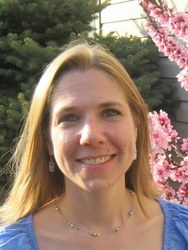
The National Cancer Institute has awarded University of North Carolina Lineberger Comprehensive Cancer Center researchers a $500,000, two-year grant to dramatically expand tobacco cessation treatment services for patients at the N.C. Cancer Hospital who use tobacco products.Program leaders at UNC’s Nicotine Dependence Program will use the grant to expand tobacco cessation programs for cancer patients at the N.C. Cancer Hospital and to test an innovative model that offers cessation treatment to family members of cancer patients that also use tobacco products.
“This is an amazing opportunity to reach every patient who use tobacco in the North Carolina Cancer Hospital with evidence-based support to quit,” said UNC Lineberger’s Adam O. Goldstein, MD, MPH, professor in the UNC School of Medicine Department of Family Medicine. “We’ll also be one of the first to provide family members with support and treatment. Providing the family with support and resources to quit at the same time as the cancer patient is likely a critical factor in whether the cancer patient can quit successfully.”

The UNC Nicotine Dependence Program started its program for cancer patients in 2009 with support from the University Cancer Research Fund. With the new grant, program leaders plan to hire additional staff to offer intensive counseling and medication guidance for more than 2,500 new and existing cancer patients who use tobacco. Research has found that medication and counseling are each effective tobacco treatment tools, but combining the two are more effective than either intervention alone, according to U.S. Department of Health and Human Services recommendations from 2008.
“We know that if people receive tobacco treatment counseling and tobacco cessation medication, their chances of success will be higher, and a new cancer diagnosis is a critical time to intervene,” said Susan Trout, LCSW, MSPH, a certified tobacco treatment counselor with the UNC Nicotine Dependence Program. “The hope is that if we can also reduce the number of people using tobacco in the patient’s home environment, it will help increase the likelihood of the patient remaining tobacco-free,” Trout said.
The team will offer face-to-face counseling and implement a new, online cessation intervention called CHART. Customized for patients with cancer who use tobacco, CHART is a self-management tool developed at UNC Lineberger.
UNC Lineberger was one of 22 cancer centers nationally to receive funding through the Cancer Center Cessation Initiative, which is part of the NCI Cancer Moonshot program. The goal of the initiative is to help cancer centers build and implement sustainable tobacco cessation treatment programs for cancer patients.
“From this grant, we’ll learn information about tobacco cessation that will be useful to cancer centers around the country,” Goldstein said. “We know that smoking through cancer treatment can increase risk for recurrence and secondary cancers. Additionally, it is linked to worsened treatment side effects from radiation, chemotherapy and even surgery.”
Other researchers on the grant include Paschal Sheeran, PhD, Lineberger member and professor in UNC-Chapel Hill Department of Psychology & Neuroscience.
